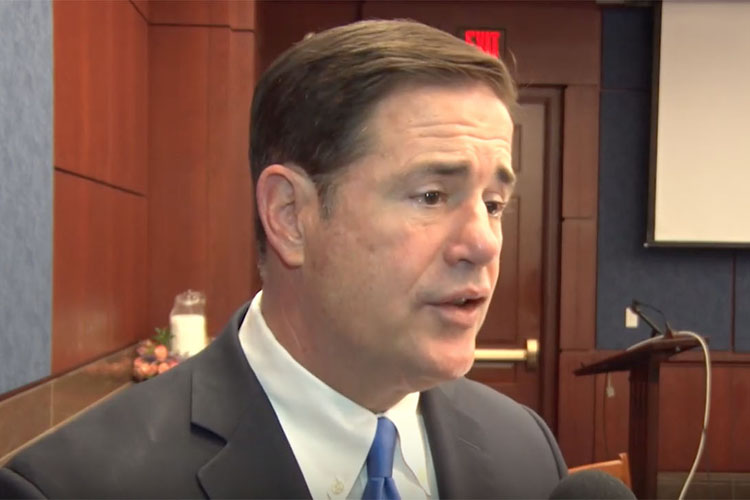|
Thanks to a major reform signed earlier today by Gov. Doug Ducey, Arizona became the first state in the nation to universally recognize out-of-state licenses. Under the new law (HB 2569), Arizona will generally issue a license to new residents who were licensed for at least one year in another state, so long as their credentials haven’t been revoked, they’re not the subject of any pending investigation, and they don’t have a disqualifying criminal record. Occupational licensing laws—which differ from state to state—create substantial barriers to worker mobility. Licenses often are not recognized across state lines, and even when they are, there are significant costs—in time and money—to get them recognized. To try to address the problem, several states have enacted reciprocity agreements and interstate compacts. But their impact is limited. Not all states participate, meaning workers from some states are locked out of Arizona and vice-versa. Moreover, states can insist on overly burdensome requirements for reciprocity or compacts, making it harder for states like Arizona to reform their own laws. License recognition, without the need for reciprocity or compact agreements, is a better solution. Many states, including Arizona for nearly the last decade, already recognize out-of-state licenses for military spouses. Now all licensed workers who move to Arizona will be free to work when they arrive and will no longer have to waste their time and money trying to obtain another permission slip from the government. HB 2569 is particularly welcome in Arizona, which ranked as the fourth-fastest growing state last year, and has over 470,000 licensed workers, or almost one-fifth of the state’s entire workforce. “Workers don’t lose their job skills just by moving across state lines, but licensing laws often treat them as if they do,” said Paul Avelar, managing attorney of the Institute for Justice Arizona Office. “HB 2569 is a common-sense reform that will help expand economic opportunity by making it easier for people to move to Arizona to further their careers.” But the new law is by no means a silver bullet for the many problems with occupational licensing. First, HB 2569 does not apply to workers who moved from states where their job didn’t require a license, but Arizona does. That means it wouldn’t have helped entrepreneurs like Essence Farmer, who worked as a natural hair braider in Maryland before moving back home to her native Arizona in 2003. Maryland did not require a license to braid hair, but at the time, only licensed cosmetologists could braid hair in Arizona, a credential that takes 1,600 hours of training. Essence, represented by the Institute for Justice, had to sue to protect her right to earn an honest living in Arizona, which prompted the legislature to change the law. Second, the new law does nothing to address Arizona’s existing thicket of licensing red tape, which ranks as the fourth most broadly and onerously licensed state in the nation. According to a 2017 report by the Institute for Justice, the average license for lower- and middle-income occupations in Arizona requires paying $612 in fees, finishing 765 days of training and experience, and passing two exams. A separate IJ study found that the restrictions imposed by occupational licensing cost Arizona’s economy over 29,000 jobs and more than $2.8 billion in “misallocated resources.” Horse massage therapist Celeste Kelly encountered a particularly absurd restriction: Arizona’s ban on massaging animals without a veterinarian license. Massaging humans doesn’t require a medical degree, yet Celeste could only massage horses legally if she completed almost four years in veterinarian school. Celeste too was able to secure her right to earn an honest living after partnering with the Institute for Justice and suing the state and forcing a change. “License recognition is a reform that other states should also adopt,” said Avelar. “But it is only a first step. Arizona continues to unnecessarily license too many occupations. IJ will continue to work with the governor and legislature on reforms and will continue to litigate to protect economic liberty when the government fails to do so.” |




